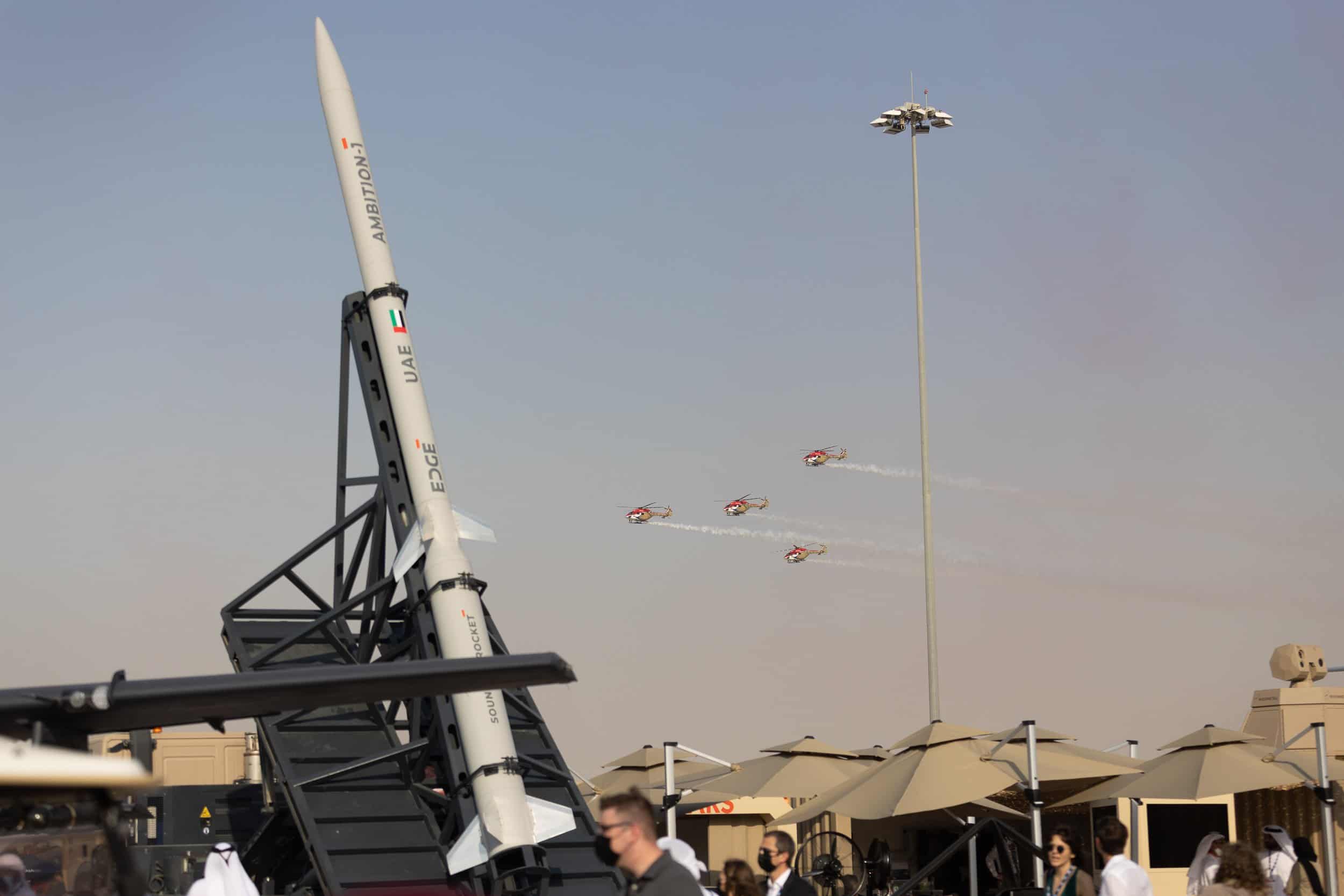Drones, guided missiles, simulators: the United Arab Emirates is on the offensive to develop its defense industry in a bid to wean itself off dependence on imports.
Khalid Al-Breiki heads one of five clusters of the Emirati defense consortium EDGE, formed two years ago and bringing together 25 Emirati arms firms in a bid to develop “national capacities”.
According to him, the Abu Dhabi-based defense consortium is an indicator of the “maturity of our industry in the UAE”.
EDGE became the first Middle Eastern company to rank among the top 25 military firms in the world last year, with gross sales of over $5 billion, according to the Stockholm International Peace Research Institute.
“We realized that we needed to bring our capabilities under one roof to focus on what we want to manufacture and service in the country, and now we can go global with that,” Breiki told AFP.
“We have a start-up mentality, but with an economy of scale.”
The group has 13,000 employees “from all over the world”, but it wants to hire more UAE citizens, with a focus on striking agreements with universities in the country or abroad.
Its targets align with a country-wide “Emiratization” strategy that has seen the authorities push for more local hires in an oil-rich Gulf country, where the foreign population outnumbers citizens at almost nine to one.
At the Dubai Airshow, the huge display erected by EDGE boasts several homemade products, from guided missiles to cybersecurity systems.
The group’s contracts have multiplied recently, nearly all of them with the UAE government.
Particularly lucrative deals have included maintenance of military jets, worth almost $4 billion, as well as providing guided munitions at $880 million.
– Cooperation with Israel –
Like neighboring Saudi Arabia and Qatar, the UAE is among the world’s top arms importers and is seeking to diversify its economy.
In the defense industry, this occurs through “offsets”, which require defense manufacturers to invest in countries that import equipment from them.
“We have 20 products done under the ‘Made in the UAE’ initiative and 13 new products announced this year,” Breiki said.
“There is an inspiration to have an indigenous capability, however we haven’t matured enough that we can do it without partners.”
EDGE has signed multiple deals with foreign partners, including US firms Lockheed Martin and Raytheon, and Brazil’s Embraer, Breiki said, adding that they are also part of the “Airbus ecosystem”.
He added that the company has set up “strategic partnerships” with certain firms “where they buy from us and sell for us”.
The establishment of diplomatic relations with Israel last year has opened up new opportunities for partnerships with Israeli defense firms, which have made their first appearance at the Dubai Airshow.
“We’re discussing with them, we’re signing contracts with them,” Breiki said, adding: “We’re in line with our government”.
On Sunday, Israeli weapons giant Elbit, known for its sophisticated unmanned aerial systems, announced the creation of a UAE subsidiary that seeks to “lead the transfer of technologies to local partners”.
EDGE, which has so far signed about 20 contracts for defense and munitions, hopes to expand its foothold on the international scene.
One of its companies specialized in precision engineering for aerospace, EPI, already exports more than 60 percent of its production.
“Export is important, not only on the economic side,” but also to demonstrate the quality of Emirati products abroad, Breiki said.
“We have this criterion: If we have a good product, we should be able to sell it abroad.”

